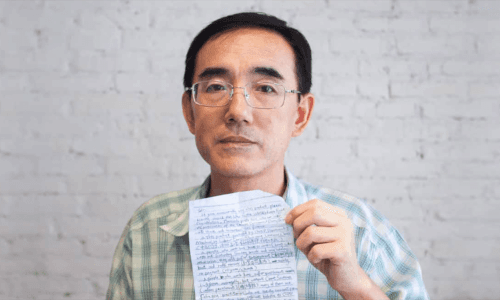Letters that have transformed the world have come from the very best persons and some of the very worst. Both categories are represented in “Five Letters From Prison That Have Changed The World” by Rodney Walker, a U.S. history teacher.
Walker became interested in how letters from prison have changed the world because some were written with an eloquence reminiscent of soliloquies. A soliloquy usually denotes a profound solo utterance of an actor in a drama. Walker says that “prison, though punitive by design, can be an unexpected birthplace of self-reflection, self-discovery, illumination, and even transformation for a man’s unsettled soul.”





